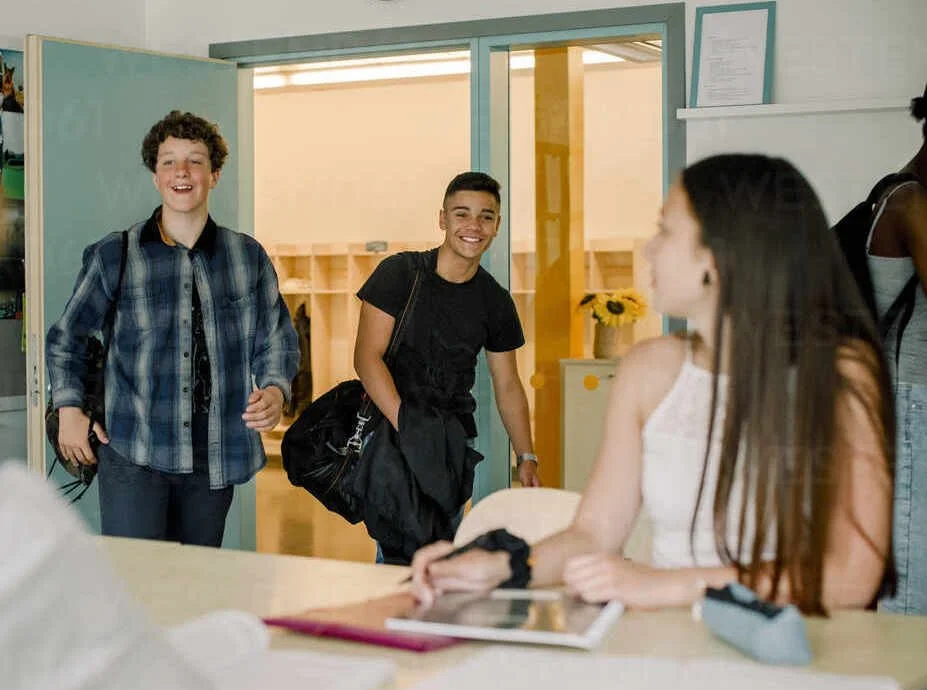Mirsky & Associates Executive Function Coaching provides coaching and support services for students, families and school-based personnel who are working to understand and overcome EF and attentional issues in the classroom and beyond.
What is Academic and EF Coaching and WHY Does it Work: Unpacking the concept of “Neurodivergence”
Executive Function (EF) Coaching centers around working one-on-one with a student to help them build self-awareness and use that awareness to learn how to navigate the rules of “the game” - usually that means school. Through coaching, students learn to more effectively decode what the rules of the game are asking. By learning how those rules challenge each individual, it’s possible to see how an individual’s unique skill set can actually help forge a unique path by which to navigate that game. That realization alone can be liberating for a struggling student: rather than trying in vain to emulate the paths that others have taken or resigning oneself to defeat, a student engaged in EF Coaching learns to understand, celebrate and capitalize on their own skill set and the path that they can forge to feel successful. The bottom-line message: The quirks that make you you are not a curse, and in fact can be the key to unlock personal success. This all starts with effective coaching.
Coaching at its heart = advocacy; someone who’s on a young person’s side and working to see and understand them, to help them learn to “own their narrative” so others can see them for who they are and what they can be. This notion of celebrating and building off of individual ability is shaping the discourse in schools today. In fact, the best schools are just starting to seriously talk about Universal Design for Learning and the concept of “Neurodiverse” or “Neurodviergent” students. Both these terms seek to acknowledge that students can locate themselves across a broad spectrum of neurocognitive functioning, and this in turn essentially mean that schools are beginning to explore a move away from a standardized approach to learning in the classroom. This is really a move to embrace more fully what we all know in our hearts to be true: every learner is different, and needs subtly different supports to flourish. To some extent this is common sense - after all, we know the best form of capacity building in any situation takes an individual at face value, sees them for who they are and what they can do, and works to get them to where they want to be. This doesn’t mean that everyone can just focus on their strengths and ignore their obstacles. But it does mean that as schools, as parents and as a society, we do right by our kids when we embrace a broader, more diversified and complex notion of what it looks like to successfully achieve goals.
The first part of that process is unearthing what those larger personalized goals and aspirations even are. For kids who have been conditioned over time not to invest in activities like classroom learning, the goal-setting process may require digging through layers of well-established disaffection and skepticism: “why strive when the game is rigged?” Perhaps a student’s goals involve some combination of factors that include school and extend out to social life and family. That still means starting with school and confidence in the classroom; after all that is where all those factors flow together, for better or for worse. When EF Coaching works effectively, a young person steps with confidence into the classroom environment knowing what moves need to be made, what pitfalls to avoid and most importantly, how a personalized strategy they helped to create can lead to their end goals.
In video-game language, EF Coaching is a “cheat code” that helps the player navigate the journey while at the same time keeping the end destination in mind. EF coaching empowers the child to embrace the identity of a “student” and see the ways that the classroom can in fact be an opportunity for them to shine. EF Coaching develops the essential Social-Emotional skills of self-awareness, tenacity, attitude and relationship-building. These skills can help mend and build bridges in the classroom AND at home, and can translate to success in the world beyond school. The goal of EF Coaching is to take this enhanced awareness of the “asks” of a school environment and develop a more robust and perceptive Situational IQ that helps decode what the asks are in a wide range of situations, and how to most effectively code-switch from one environment to another. This is a core EF skill - “reading the room” - and coaching helps an individual learn what they need to do to read all the “rooms” in their life.
EF Coaching systematically examines an individual child’s past experiences, strategies and approaches, to learn from the past and build toward the future. For students who struggle with EF, half the battle is getting to a place of self-knowledge: ‘this is who I am, these are my attributes, this is where I shine and where I need more support, and this is what I ultimately want to achieve, even if I don’t see right now how I would get there.’ An accurate and accessible self-inventory - informed by different evaluation tools - unlocks the crucial second half of the battle: self-advocacy. Once kids know who they are, how they’re wired, where they tend to thrive and where they tend to get derailed, the real adventure begins!

